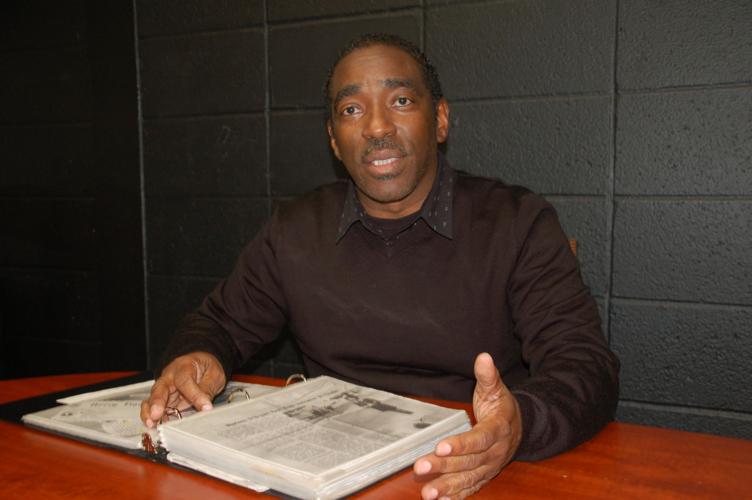“Hidden Figures” is an award-winning movie about three African-American women whose work as mathematicians helped make this country’s space program a success during the 1960s.
It is billed as an untold story, and Wayne O’Bryant believes there are many more like it from the nation’s past that have been ignored.
The Graniteville resident’s mission is to make sure they don’t continue to be overlooked.
“There are these gaps, and when you fill those gaps in with information, then you get a clearer picture of what exactly happened,” O’Bryant said.
One way in which O’Bryant spreads the word about the contributions of African-Americans and their roles in important events is through his books.
They include “Flower in the Sand: The History & Heritage of Bettis Academy,” which is about a school near Trenton where thousands of African-Americans were educated before desegregation.
O’Bryant also is the author of “In the Footprints of a Giant: The Vesey Connection,” which focuses on Charleston in the 1820s and Denmark Vesey’s plan for a major slave revolt.
In “The Exhumation of Hamburg Incident,” which O’Bryant hopes to publish later this year, the subject is the bloody massacre caused by a white mob attacking a black militia in 1876 in Aiken County.
In addition to writing books, O’Bryant serves as a Heritage Council of North Augusta board member, conducts black history tours, gives speeches, assists people with genealogical research and uncovers little-known facts for documentary films, museum exhibits and historic markers.
“He is one of the few people pursuing what he does, and it is his passion,” said Brenda Baratto, executive director of the Aiken County Historical Museum. “It’s his vocation as well as his avocation. He is a go-to person for me, and it’s always a pleasure to work with him.”
O’Bryant, 56, was born in Charleston in the midst of the civil rights movement. In his family were three generations of educators, and one of O’Bryant’s great-grandmothers, Fannie Greenwood Quarles, was determined that he would start learning about the accomplishments of African-Americans at an early age.
“My mother hired a babysitter to take care of me while she was teaching in an elementary school,” O’Bryant said. “One day, she left something at the house and came back. The babysitter was sleeping, and I was gone. When she asked where I was, the babysitter said, 'Every time you leave, your grandmother comes and takes the baby. She tells me I might as well go to sleep because the baby’s not coming back until right before you get home from work.'”
O’Bryant’s mother, Marlene O’Bryant-Seabrook, paid the babysitter for two months of work, sent her away and officially made Quarles O’Bryant’s caretaker.
When O’Bryant got to be a little older, Quarles began talking to him about the past.
“She actually sat me down and told me, ‘Son, I have to teach you your history because I know everything that’s in the schoolbooks and our history isn’t there,’ ” O’Bryant remembered. “We would go the museum in Charleston, which was right around the corner from our neighborhood, and she would sit on a bench outside it and teach me. Eventually, that expanded to taking me all around the city to different sites. She showed me where the slave ships came in and where the auction blocks were. I saw all sorts of things.”
Those lessons stuck with O’Bryant as he matured, but he explored other interests while attending South Carolina State University and Midlands Technical College.
“I made this big mistake and started looking at what jobs paid instead of thinking about what I really wanted to do,” O’Bryant said.
He became a tax technician and thought about continuing his studies to become a CPA. Later, he started a home improvement business.
But the birth of the first of his three sons and what O’Bryant describes as religious experience changed the direction of his life.
“When my first child was born, I realized I needed to start teaching him what my great-grandmother had taught me, O’Bryant said.
Then, one day, while O’Bryant was sitting in his apartment, a shadow fell over him even though the sun was shining through a window.
“All of a sudden, things were being fed into me knowledge-wise and all of these thoughts were being connected,” said O’Bryant, who believed God was communicating with him.
Other incidents that were similar followed, and O’Bryant concluded that the bottom line of God’s message was to “find the truth and give it back to the people” because “you were born to be a historian.”
O’Bryant began with his great-grandmother’s stories and went looking for documents to back them up. He also researched other topics and wrote about what he discovered, providing a more diverse picture of history that includes the many parts played by African-Americans in building this country.
The South Carolina legislators who were instrumental in founding Aiken County in 1871 – Charles D. Hayne, Samuel J. Lee and Prince Rivers – were black.
“I’m doing battle with racism,” O’Bryant said. “With writing and history, I am integrating the races. We have shades of skin that go from very light to very dark, but we’re all just one big American family. If somebody is reading one of my books or listening to me and they start getting closer to that way of thinking, I’m creating additional teachers and they will spread that attitude.”






